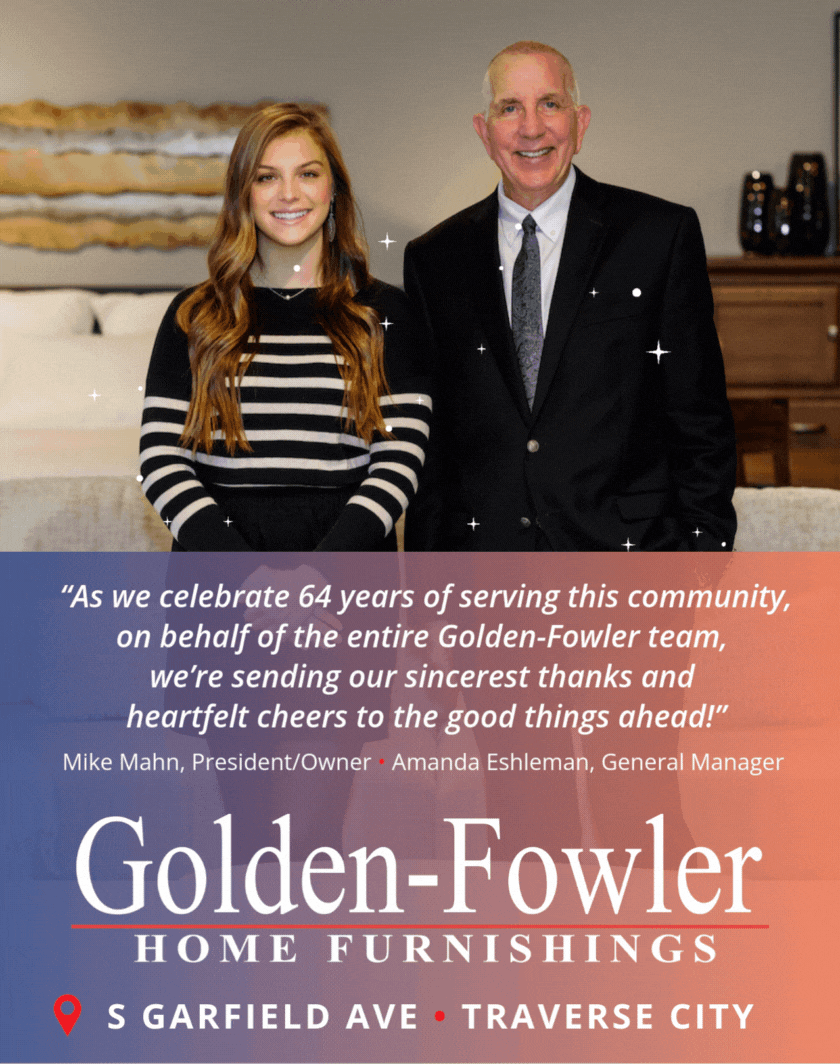
Inside The Union Negotiations At Munson
By Luke Haase | Sept. 17, 2018
More than a year after nurses voted 489-439 to unionize at Munson Medical Center, contract negotiations between Munson and its nurses continue. What’s the state of the negotiations, what’s the root of the finger-pointing about delays, and what issues remain? The Ticker takes you inside the bargaining room, as we sat down with members of the negotiating teams on both sides to learn how the process works, how management and nurses are getting along during tense times, and what the chances are of a deal soon.
The Ticker met with two members of each negotiating team:
Jennifer Standfest RN, Director of nursing practice and professional development, at Munson 15 years, (management) (pictured above right)
Tamara Putney RN, Director of nursing for critical care services, at Munson 17 years, (management) (pictured above left)
Carolyn Moss RN, clinical quality, at Munson 15 years, (union)
Cindy Rydahl RN, surgical service, at Munson 34 years, (union)
Ticker: Did you volunteer, were chosen, and are you paid for this work?
Rydahl (Union): There was an election for contract team members. We were nominated and agreed a year ago. It’s all voluntary. We work our schedules around the bargaining dates. It’s a huge commitment.
Standfest (Management): We’re salaried individuals, so theoretically we’re paid for this. We’re on the team with two other nurses and our HR director and the legal team as well. Tami and I and the other nursing leaders have quite a bit of Munson experience as staff and in leadership and also what it takes to run a hospital for a long, long time, so we have both perspectives. And part of the reason is we’ve developed trust with both nurses and the management team.
Ticker: What’s the latest with negotiations and the 17 interim or tentative agreements that have been reached?
Putney (Management): Yes, we’ve got some tentative agreements, a total of 17 now. And 15 of the 17 are agreements to continue doing things exactly the way we do now. But it’s very complex. And one issue could have ten agreements within it, or just one.
Moss (Union): Yes, many of those agreements might be the same as the policies are now, but there’s a difference between what’s a policy and what’s actually taking place. Staffing is a perfect example: There’s a policy, but it’s definitely not always followed.
Rydahl (Union): And keep in mind even with agreements like eliminating mandatory overtime, those changes don’t take effect until we have our contract ratified, so right now management can just use their old practices.
Ticker: How does a bargaining session typically work?
Standfest (Management): There are two major ways we’ve done it so far. One is at the table, usually with one team on this side of the table and the other team on that side and the legal teams on each end. There are packets that each of the teams has worked through, so we make 20 copies and decide who goes first. Someone will say, “I have four proposals to pass today -- one on seniority, one on vacancies, and one on healthcare.” Then you have the papers in front of you, and the team that developed it walks you through it. And people will say, “What did you mean here? What was your intention?” And then we often caucus, where you go to your own corner or room and then the team can come back and say, “I don’t think this is going to work based on something I’ve seen or whatever.” Then there’s an opportunity to reach out to other folks outside we will need to work with or get other information from. And then the second form is a more informal session, or a sidebar, where one or two members of a team might have a special interest or knowledge of an issue and might do a sidebar meeting. So you’re not in the room negotiating, you’re in the lobby of the hotel or whatever.
Putney (Management): But there could be outcomes from those sidebars. And you might go to the table four times in a session with caucuses and sidebars in between. But the attorneys are always present.
Standfest (Management): They’ll be full days, and usually we’ll do two days in a row, and then try to have a break week to go back and study and discuss, and then the following week we’ll do two more days.
Ticker: Are the sessions confrontational?
Moss (Union): We met both of them [Putney and Standfest] a few times prior to starting the sessions. We always say hello and exchange greetings. And as this has gone along, it’s gotten better and the dialogue improves. There’s just a little bit more openness about where we’re coming from, why it’s important to us and the patients, and what it ultimately means for everyone.
Standfest (Management): The tone varies from topic to topic. But it’s very formal and respectful and professional. Certainly there are topics people are passionate about, and that’s good! We want people to be passionate about care here.
Ticker: Is the unionization a distraction or a problem in the workplace?
Moss (Union): I think the nurses are excited: Anytime you can address challenges you face, it’s a good day for a nurse. When we can have a voice and advocate for our patients, that’s a good thing.
Putney (Management): I think honestly one of the most amazing things about the team at Munson is you walk down the hall and you don’t even know it’s happening. It’s care as usual. We have a lot of trust here, and that’s one of the reasons we’re at the table. We’re going to do the right thing, and it’s going to be deliberate.
Standfest (Management): I agree wholeheartedly. Everyone at the table has true respect for each other. We might not understand or agree on how things need to get done or understand what everyone’s day-to-day looks like, but we understand nursing and the impact we have. But as much attention as there is on this issue, there’s also work to be done, and it’s taking care of people.
Ticker: How much work remains? What’s taking so long?
Rydahl (Union): We have yet to talk about staffing, which is a huge issue for nurses. We put out a proposal on staffing last winter, and Munson has yet to address it. We’re protected by having a union, but we don't have the full protection because we don’t have a contract verified. So we’re still at their liberty. We have had bargaining sessions canceled by the administration, so that appears to be a delay to us. We feel at the bargaining table we come prepared with proposals to present, and it feels like they sometimes come just starting to work on those issues instead of doing their homework on the side. We plan on meeting at a certain time, and they often say they need more time for whatever. The actual time we’re all together is very small.
Putney (Management): There are times when some issues we have to revisit later, because we’re waiting for the economics or more information. These are very complex and interrelated issues.
Standfest (Management): You just have a very different perspective as a bedside nurse versus being a manager or director. It’s just not so simple. Everything we decide here has a ripple effect on other units and policies and economics. We’re really motivated to get this done, honestly. We want to have it done. We are committed to making progress here and moving on.
Moss (Union): We’ve had dates scheduled but no location, and they won’t allow us to meet at the hospital [the sessions have been held at a local hotel]. We’ll meet in a park if we have to. We want to get it done. Why nurses wouldn’t be able to discuss nursing issues with administrative team at a hospital seems counterproductive. And the Chief Nursing Officer has not been to the bargaining table yet. Neither has [Munson Healthcare CEO] Al Pilong.
Putney (Management): It’s just important to note that there’s a difference between stalling versus bargaining in good faith. Bargaining in good faith doesn’t mean we’ll agree on everything. That’s what bargaining is – finding agreements that both sides can live with and work with.
Standfest (Management): I think there are some complex issues remaining, like scheduling. That’s going to be complex. We do have two interim agreements around scheduling, and there’s a lot we can learn from those. But for example, how do you schedule 62 people in a unit and decide who’s first to take vacations and when, how many people you need on the schedule…in a legal document? The level of detail is quite significant. And within scheduling, you have to think about all the different care areas in a hospital. There’s inpatient nurses, and then you have to consider schedules for those nurses who are just on-call. So how do you make it all fair, and not overtaxing to any individual or team? I feel confident that those of us who have been doing this for a while have a lot of experience and ideas about how we can get agreement on that, but it gets tricky sometimes.
Ticker: What’s the best case/worst case scenario?
Standfest (Management): I suppose the worst case is there are organizations that don’t reach agreements. I don’t think that will happen here, but it does happen.
Rydahl (Union): [A contract] is going to happen. It needs to happen; otherwise we wouldn’t have voted in a union. Munson has done a great job of providing a platform for nurses, but often what comes out doesn’t necessarily reflect what we say and what we want. And we are the front-line care providers. We understand what the patients need. It would be wonderful to be wrapping it up by the end of the year. I hope so. We put in a lot of hours and it’s all voluntary time. Nobody knew what they were getting into, but I was told it might take 6-9 months and we’ve already surpassed that.
Moss (Union): I don’t really know what to expect. Most of us have never been through anything like this. Personally, this is what we voted for, and we are going to come to the table and get this done. We’re committed to coming early and staying late to get a deal done.
Standfest (Management): We got a prep course on how this was going to look, but nobody would have known until you get into it. I’m not shocked by the speed of it. I think there was a bit of an unrealistic expectation that bringing the MNA [Michigan Nurses Association] in here was going to be magically easy. It’s never that easy, not disrespectfully, but it’s just not that easy. Different groups are going to want it different ways, and that’s challenging. We’re in a spot where right now we’re trying to get to that consensus, and people have some very strongly held personal beliefs. But we want to get this done.
The teams have now agreed to a schedule of negotiating sessions through the remainder of 2018. Munson has established a website that is updated following each negotiating session.







